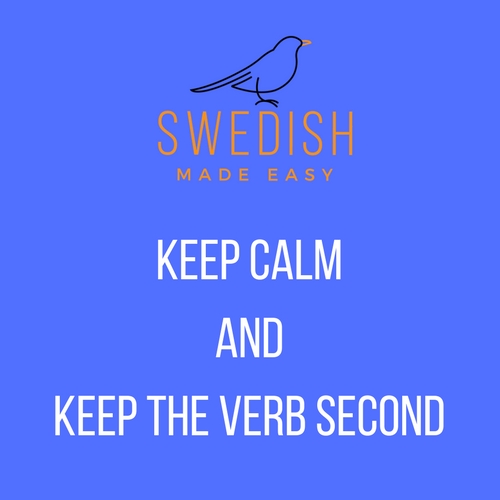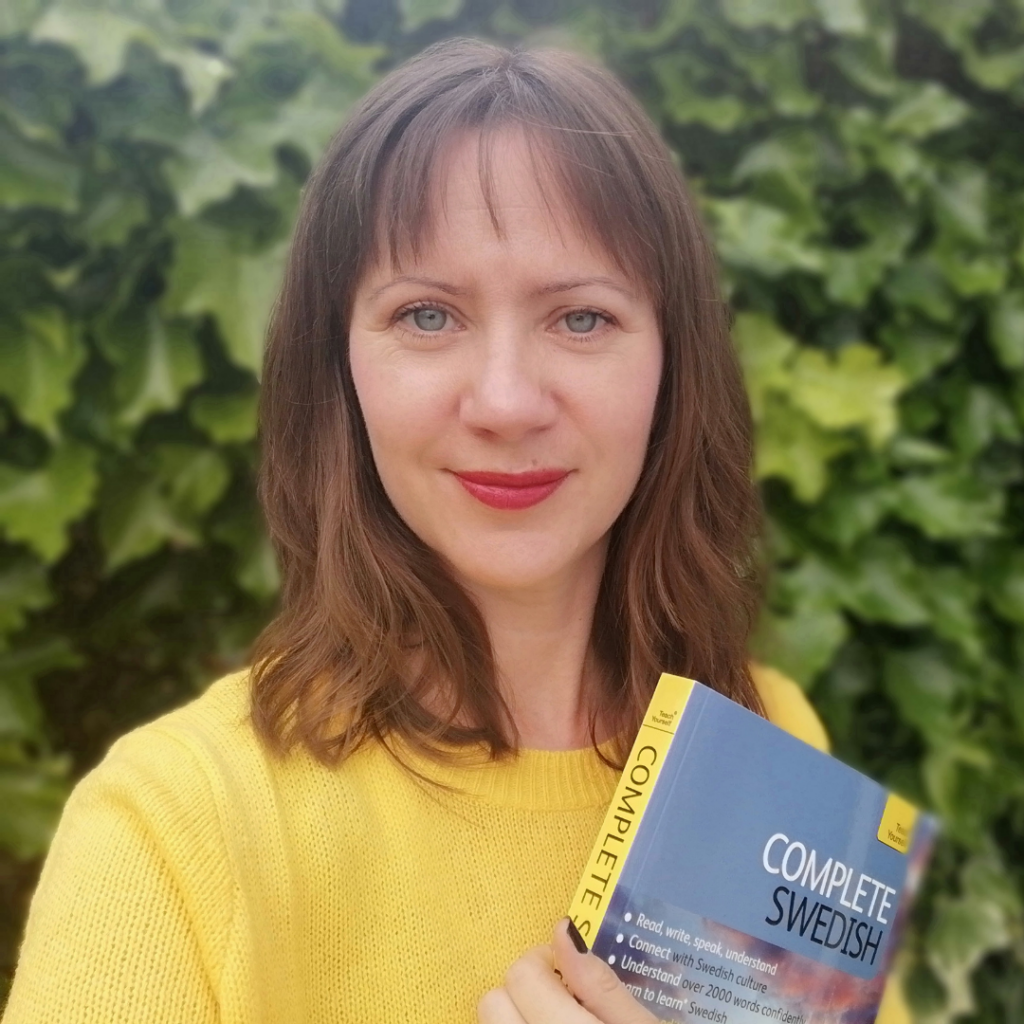One of the major issues for learners, especially for English speakers, is Swedish word order in sentences. People nearly fluent still sometimes make word order mistakes in Swedish, and for beginners this is really difficult to get your head around. These kinds of mistakes sound pretty ugly to Swedes: no native Swede would do this, so it is a very obvious clue that someone is not Swedish.
English word order
Compare these two sentences in English:
1. I eat breakfast at 8 o’clock.
2. At 8 o’clock I eat breakfast.
In number 1, the time (at 8 o’clock) is placed in the end. In number 2, the time is placed in the beginning. Regardless of if you place it in the beginning or the end, the “core sentence” (I eat breakfast / subject-verb-object) remains the same in terms of word order.
Swedish word order
Now look at the same sentence in Swedish:
1. Jag äter frukost klockan 8.
2. Klockan 8 äter jag frukost.
From an English perspective, this looks odd. In number 1, the time is placed in the end, just like in the English version. But in number 2, something happens when the time is placed in the beginning. The word order of the “core sentence” has changed (äter jag frukost / verb-subject-object).
Verb comes second
Instead of trying to remember to speak the core sentence backwards, many find it easier to think about the positioning of the verb: the verb comes second. Look at these sentences again:
1. Jag äter frukost klockan 8. (subject-verb-object-time)
2. Klockan 8 äter jag frukost. (time-verb-subject-object)
How it works with time expressions
In both sentences, the verb comes in the second position. And when I say second position, I do not mean that the verb is the second word. Time expressions, like klockan 8 in the example above, can be short one-word expressions (först, sedan, nu, ibland), two word combinations (på kvällen, i går, nästa vecka) or even longer (klockan fem i halv nio på måndag morgon). However long or short they are, they are all time expressions. And if you start a sentence with them, then the verb must come in second position after the time expression.
How it works with place expressions
The same also happens with place expressions. They can be short (här, där, hemma), longer (i Sverige, hemma hos oss, på jobbet) or really long (på soffan i vardagsrummet hemma hos oss i Nottingham). Regardless, if you start a sentence with a place expression, verb must come in second position, just like with time expressions.
Practice Swedish word order with rhythm
A good way to practice this, is to actually alter the rhythm in which you speak. I have noticed that many English speakers have a natural rhythm when they speak these kind of sentences in English. It goes something like this:
“Yesterday I………. stayed up late.”
“This weekend we……..’re going away.”
“Tomorrow I…………. finish work early.”
The time/place and subject are said in one breath, followed by a natural pause while finding the verb, and then the sentence continues. If you apply the same rhythm while speaking Swedish, you end up in trouble. And once you’ve got to the verb, the damage has already been done – the word order is incorrect.
Instead, practice making the pause immediately after the time or place expression, and look for the verb. Then add the subject, and then continue. Like this:
“I morgon……(look for the verb)……….. jobbar jag… hela dagen.”
“I helgen……..(look for the verb)………. ska vi… åka till London.”
“I köket……….(look for the verb)………. finns det… en extra stol.”
If you practice this slightly different flow and rhythm in your speaking, you’ll get into a new way of constructing your sentences, and it will become easier to do it correctly.
And if you want to learn how to think in Swedish word order, so you don’t have to translate everything in your head, CLICK HERE.






